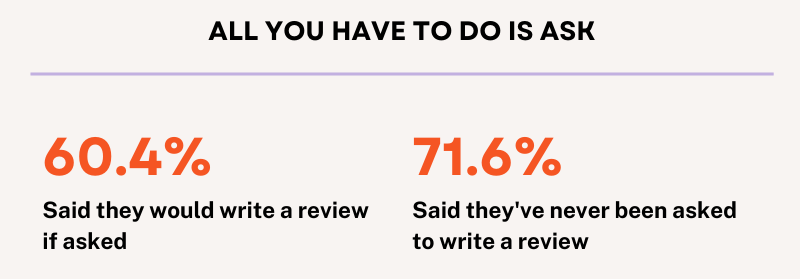Multifamily Blogs
Fake It Til You Make It: Review Generation Fails
Fake It Til You Make It: Review Generation Fails
Review generation is a persistent challenge in the multifamily industry. It can be intimidating, time-consuming, and sometimes leads companies into looking for a “quick fix.” But in this day and age, businesses are under heavy scrutiny due to the Federal Trade Commission (FTC) creating more strict regulations and the customer expectation being higher than ever. Bottom line, a "quick fix" won't cut it. Don’t get caught up in a fake reputation that has renters looking elsewhere - keep it real.
Here are 5 misleading review generation practices and the reality about why you should avoid them.
1. Hosting a review party or setting up a station during community events so residents can write a review.
- Review site authenticators (bots) will consider a large influx of reviews in a short amount of time as spam and are likely to block the content and/or temporarily ban your company/community on the site.
- If a resident is writing a review in front of your team or in a public setting where other employees or residents can see it, they may feel forced or obligated to share a less-than-authentic review, which is not fair to them or to other renters interested in learning about the true resident experience in your community. This could potentially jeopardize the resident’s renewal decision as well.
Best Practice: Maintain a steady influx of reviews through authentic touchpoints, regular follow ups, and engagement with prospects and residents.
2. Asking for a negative review to be removed once the issue has been resolved.
- This is against best practices for review sites and could be considered a questionable legal threat. If a reviewer feels that they may be penalized for their review or not removing a negative review, this could be considered intimidation.
- The resident may question the sincerity of your customer service if they feel any quid pro quo about an issue being fixed in exchange for removal of a review OR they may get the idea that when they have an issue, the best way to get it resolved is to write a negative review, which can create a cycle that no onsite team wants to deal with.
Best Practice: Most review sites have the ability to edit and/or add a thread update to a review. Using this practice not only provides an authentic representation of your resident experience, it also highlights your customer service, showing how your team reacts to issues and shines a light on their exceptional service.

3. Encouraging residents to write about something specific regarding the community.
- This puts each resident’s experience in a silo. *Prospects read an average of 5 reviews before deciding to contact a community. If multiple renters write reviews mentioning a specific employee or a resident event and the prospect isn’t able to get an accurate sense of what the community is really like, they are more likely to continue their apartment search elsewhere.
- Renters value review quality, not review quantity. Most review sites require a minimum length of text with their rating to better ensure the quality of reviews and to avoid review extortion schemes.
Best Practice: Encourage well-rounded reviews. A new move-in may not have as much knowledge of the community, but they can share what they have seen so far (and on most review platforms, they can continue to add onto their review down the road). A long-time resident has tons to share about why they chose to stay - all you have to do is ask. In the most recent *Biennial Online Renter Study by SatisFacts, 71.6% of renters said they have never been asked to write a review. 60.4% of renters said they would write a review if asked.

4. Gamification or offering reward points or other gifts is not considered a review incentive.
- Per the FTC, incentives include anything given in exchange for a review; whether the review is positive or negative.
- When review incentives of any kind are not disclosed either by the reviewer or in the review response, the management company can be penalized for violating the FTC Act.
Best Practice: Do not offer any incentive or motivation that may, intentionally or unintentionally, encourage a resident to write a review about a person or community. This practice will help ensure you do not get flagged and/or fined for incentivized reviews or review gating.
5. Capture negative experiences internally before they become online reviews.
- This can be considered review suppression, which is a violation of the FTC Act.
- A third party that filters out negative reviews or offers a different path to negative feedback vs positive is practicing review gating. Several companies have been fined for this by the FTC as they continue to crack down across the multifamily industry.
Best Practice: Don't use any tools, service providers, or even internal communication that allows or suggests having negative feedback receive a different action or treatment than positive. All requests for feedback should be communicated equally and processed equally and should never be requested to be shared as a positive or favorable opinion.
In summary: Create a consistent touchpoint process and actively and genuinely engage with residents to create authentic review generation opportunities that reduce the intimidation factor and make asking for reviews second nature. According to a recent *Yelp article, when reviewers feel they’ve spotted fake or untrustworthy reviews, 49% will go find other reviews to gather additional opinions, 34% won’t acknowledge the review in their process, 27% go look at another business, and 24% report the review to its respective platform. Whether losing a potential lease or paying a major fine and permanently damaging your reputation, not knowing the facts about review generation can be dangerous.

Sources:

